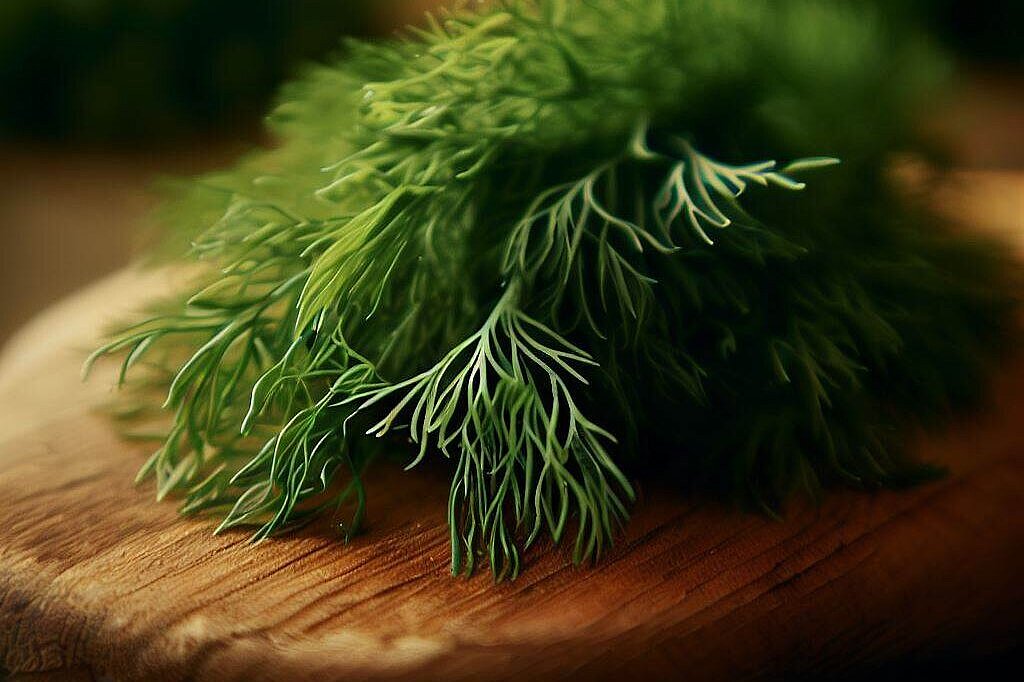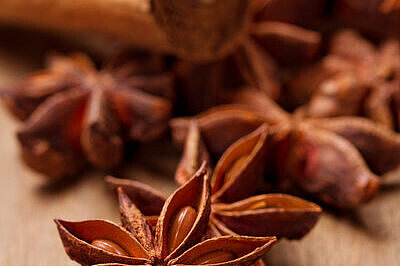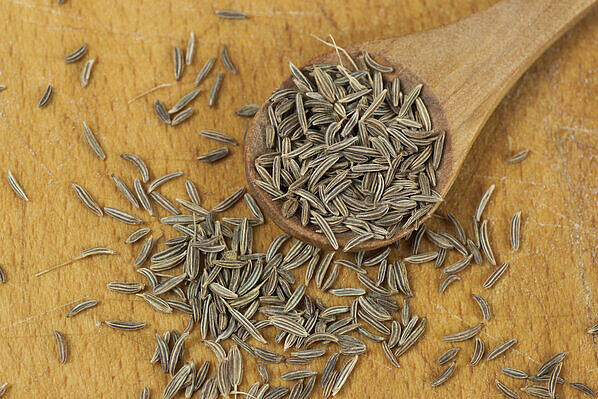Aniseed

The benefits of aniseed for dogs
Anise seeds have an antispasmodic, expectorant and digestive effect. They can help to relieve flatulence, bloating and gastrointestinal complaints in dogs. They can also stimulate the appetite and clear the airways. Aniseed also has an antibacterial and antifungal effect, which can support the immune system.
The disadvantages of aniseed for dogs
Although aniseed is not toxic to dogs, it should only be given in moderation. Too much aniseed can lead to nausea, vomiting or diarrhea. In addition, aniseed can trigger allergic reactions in some dogs or interact with medication. You should therefore always ask your vet for advice before giving your dog aniseed.
How can you give your dog aniseed?
If you want to give your dog aniseed, you should bear a few points in mind:
- Only use whole or ground aniseed seeds from organic farming. Avoid artificial flavors or added sugar.
- Do not give your dog more than a small pinch of aniseed powder or 1-2 grams of aniseed per day in their food.
- Only give your dog aniseed as a cure, for example for acute complaints or as a preventative measure in winter.
- Combine aniseed with other digestive herbs such as fennel or caraway.
- Monitor your dog for possible side effects or intolerances and stop giving it if you notice anything unusual.
Aniseed can be a natural addition to your dog's diet and help with various health problems.
Properties 6
Are you looking for other ingredients with a specific property?
Just click on them to find more.
If you notice any signs of hypersensitivity or poisoning in your dog, you should see your vet immediately. We are not a substitute for a vet, but we try to be as accurate as possible. Every dog reacts differently and we recommend you get a second opinion or consult your vet if in doubt.
Stay healthy and take good care of your four-legged friend!😊
Similar to Aniseed
Coriander, also known as Chinese parsley or coriander leaves, is a plant that is used as a spice in many parts of the world. The plant belongs to the umbellifer family and has delicate, green leaves...
Dill is a spice plant from the Apiaceae family. It is known for its fine, fern-like leaves and fine seeds, which are often used in cooking. Dill originates from southwest Asia, but is now cultivated...
Star anise (Illicium verum) is an evergreen plant that grows in the tropical regions of Asia. The fruits of the plant are star-shaped and each contains one seed. The fruits are dried and used whole...
Caraway (Carum carvi) is a plant from the umbellifer family, which also includes fennel, aniseed, coriander and carrots. Caraway grows on roadsides and meadows and has white to pink flowers that...



